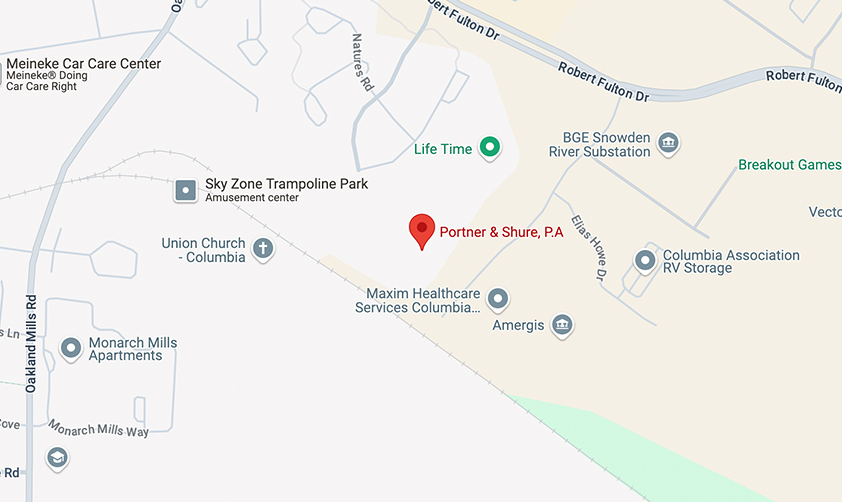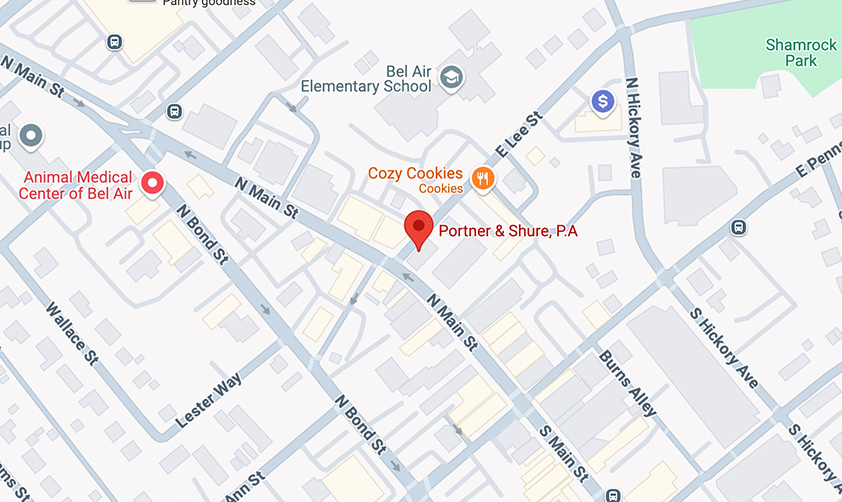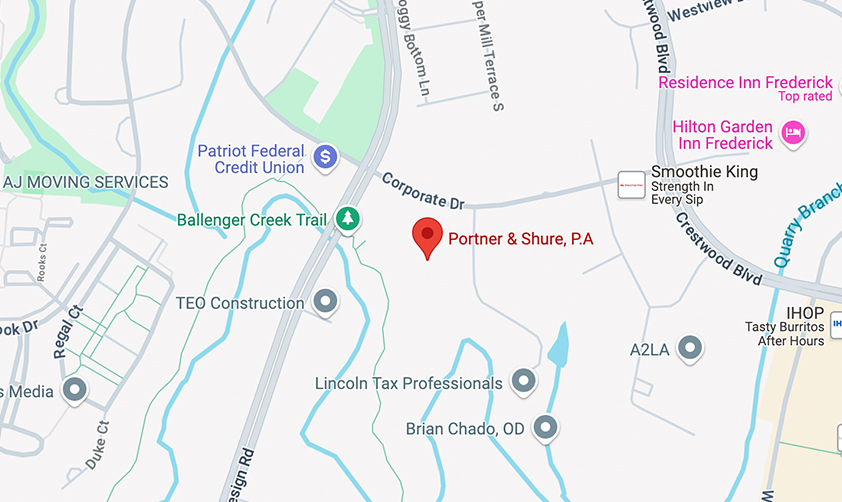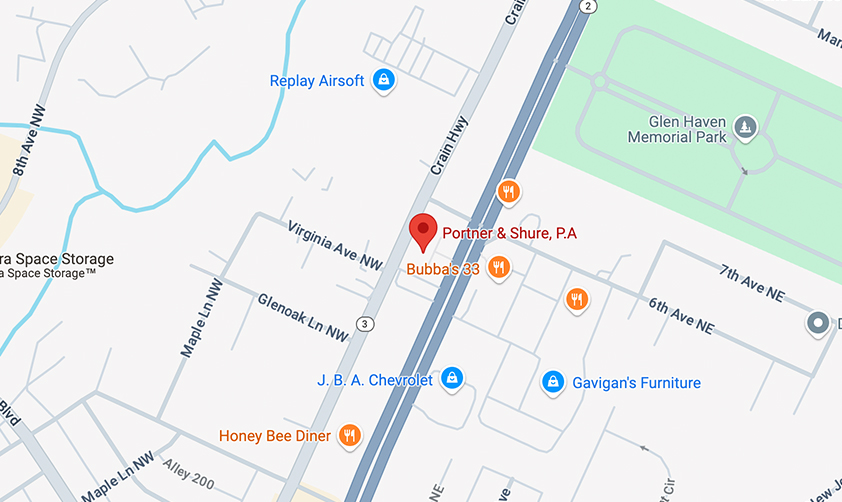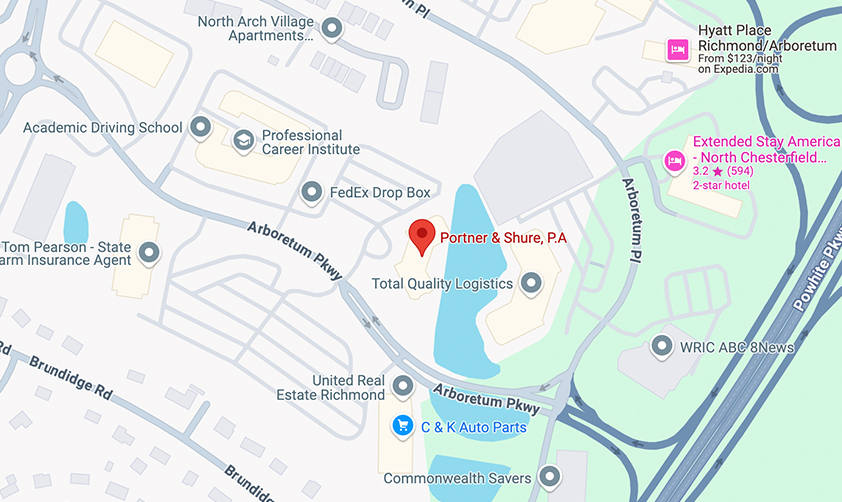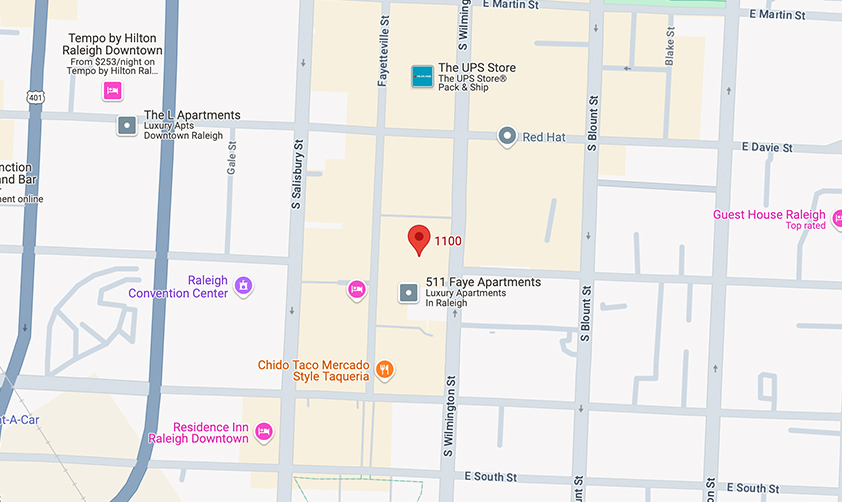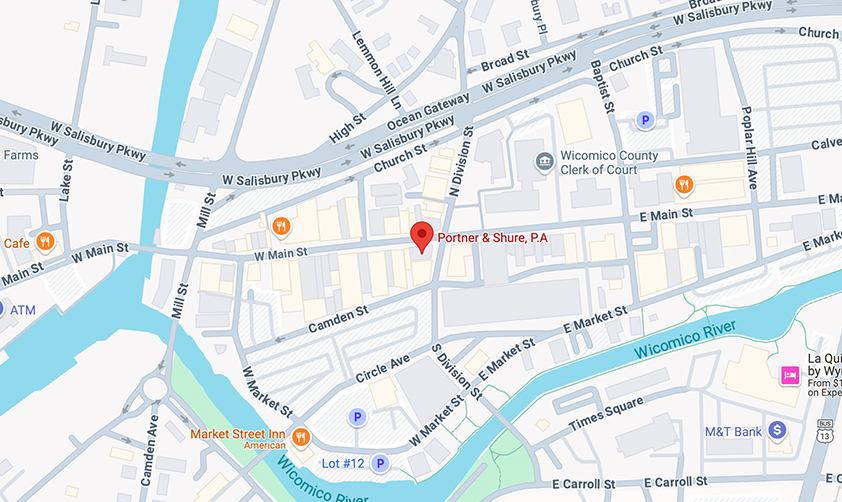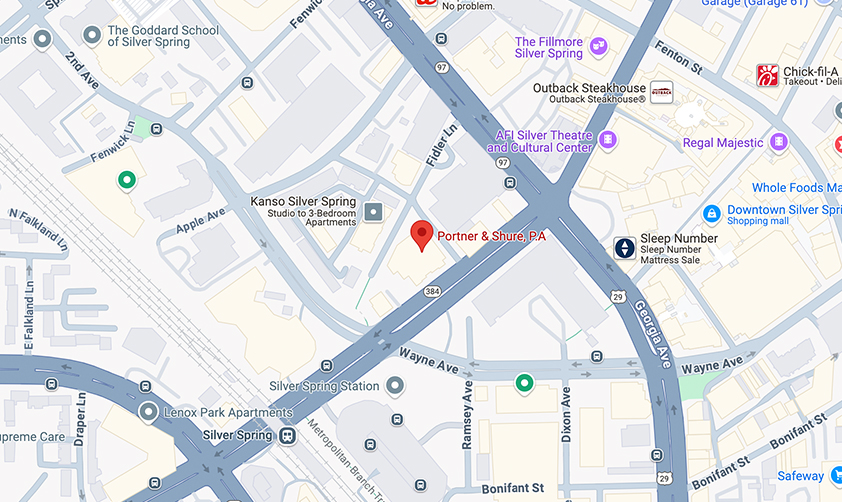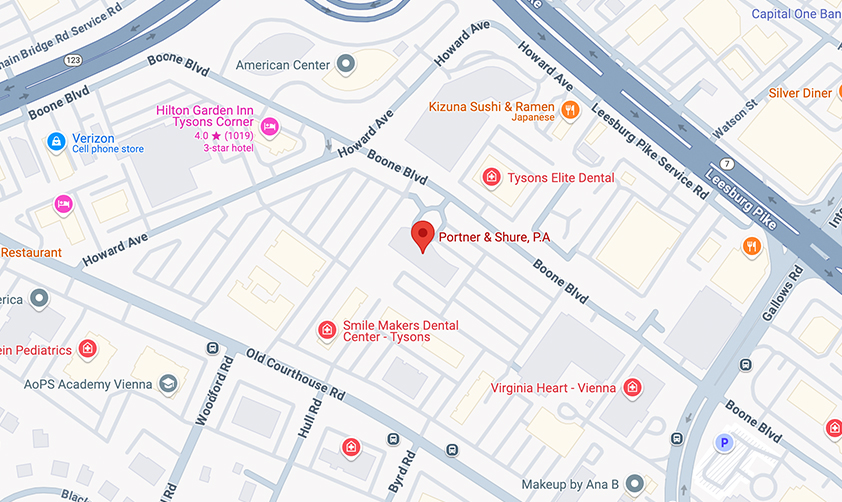Workplace injuries can occur at any time. These unfortunate accidents can cause pain, disability and uncertainty about how you will pay your mounting medical expenses, especially if you are unable to work and provide for your family.
If you’ve been injured on the job in Maryland, Virginia, Washington D.C., or North Carolina, you may be entitled to workers' compensation benefits to cover these expenses and more.
Why You Need a Workers' Compensation Attorney
Workers' compensation claims may seem simple on the surface, but they can quickly become overwhelming. Employers and insurance companies typically aim to minimize payouts, and they often push for quick settlements. That’s why having an experienced attorney by your side is crucial to protecting your rights and securing the full range of benefits you’re entitled to.
At Portner & Shure, our nationally-recognized attorneys have decades of experience battling insurance companies. We've recovered more than $500 million in verdicts and settlements for our clients and understand the tactics insurers use to undercut workplace accident victims. Whether you're dealing with temporary or lifelong injuries, we fight to ensure you receive the compensation you deserve.
What Is Workers' Compensation?
Workers’ comp is a system which provides compensation for medical bills, lost wages and possible vocational training to employees who have suffered a work-related injury or illness.
Workers’ compensation claims can be extremely complex and difficult to navigate alone. As state-mandated, no-fault insurance, workers’ comp entitles you to certain benefits whether you or your employer caused the accident that harmed you. While you do not need to establish fault in order to claim these benefits, it is critical to work with an experienced attorney to look out for your best interests. Your employer and the insurance company want to settle your claim as quickly as possible.
Workers’ Compensation Laws: State-Specific Information
Workers’ compensation laws differ significantly in Maryland, Virginia, North Carolina, and Washington D.C., making it essential to understand the specific regulations for your state. These variations include how long you can receive benefits, what injuries are covered, filing deadlines, and the process for choosing medical providers.
Workers’ Compensation in Maryland
To qualify for worker’s comp in Maryland, you must have suffered an accidental injury or occupational disease during the course of your employment. For example, being struck by a falling object on a job site may qualify as an accidental injury. The statute of limitations for workers to file a claim is two years from the date of the accident. While it is the employer's responsibility to file a report of your injury, you must ensure the report is filed correctly and on time to receive the compensation you deserve.
Workers’ Compensation in Virginia
Virginia law requires you to immediately notify your employer in writing after a work-related injury or illness, providing details such as the nature of the injury, where and when it occurred, and the cause. To receive workers’ compensation in Virginia, workers must file a claim within two years of the accident.
Workers’ Compensation in Washington, D.C.
Washington, D.C., operates under its own distinct workers' compensation laws, administered by the Department of Employment Services (DOES). These laws govern various aspects of the system, including eligibility, benefits, and claims procedures. Specifically, D.C. workers' compensation covers work-related injuries and illnesses, providing benefits that may include medical treatment, lost wage replacement (temporary disability), and compensation for permanent impairments.
The duration and amount of these benefits are determined by D.C. law. The statute of limitations for filing a claim is a critical detail that must be adhered to. The process for selecting medical providers, as well as the hearing and appeal procedures for disputed claims, are also unique to D.C. Because of the complexities and specific regulations involved, it is highly recommended that injured workers in D.C. consult with an experienced workers' compensation attorney.
Workers’ Compensation in North Carolina
North Carolina operates under its own set of workers' compensation laws, which govern the claims process, covered injuries and illnesses, benefit calculations, and dispute resolution procedures. These laws also establish specific rules for claim filing deadlines, medical provider selection, and appeals.
A critical component of North Carolina's system is the statute of limitations, which requires that workers' compensation claims generally be filed within two years of the injury. Failure to meet this deadline can result in a claim being barred. Because of the complexities of these regulations, including the two-year filing window, it is highly recommended that injured workers in North Carolina seek legal counsel as soon as possible after a work-related injury to fully understand their rights and improve their chances of a successful claim.
Types of Workers’ Compensation Benefits
There are several types of workers’ compensation benefits available to an injured worker:
- Temporary Total Disability (TTD): For workers unable to return to work temporarily, TTD pays two-thirds of your salary (non-taxed) during recovery.
- Temporary Partial Disability (TPD): If you can work part-time or take a lower-paying job, TPD can supplement your reduced income.
- Permanent Partial Disability (PPD): When injuries result in lifelong impairments but don’t completely prevent you from working, PPD benefits may apply.
- Vocational Rehabilitation: Provides re-training, education, or job placement at no cost if your injuries prevent you from returning to the same role.
- Death Benefits: For families of workers who lose their lives on the job, these benefits can cover funeral costs and provide financial support.
How an Attorney Helps Maximize Your Workers' Compensation Claim
Consulting a lawyer early in your case can make all the difference. A skilled attorney can help you by:
- Guiding you through the complex claims process.
- Representing you against insurance companies that try to downplay your injuries.
- Ensuring you meet all deadlines and legal requirements in your state.
- Fighting for fair compensation, including appeals for denied claims.
Don’t risk losing potential benefits by handling your claim alone—it’s critical to have an advocate like Portner & Shure who will protect your rights every step of the way.
Common Reasons why Claims are Denied
There are a variety of reasons why a workers’ compensation claim may be denied. The most common reasons are:
- The claim was not filed on time
- The worker provided incorrect or insufficient documentation
Additionally, even if you’ve filed your claim on time, with correct and appropriate documentation and in the proper jurisdiction, your employer or its insurer may still dispute your case by arguing that your injury or illness:
- Does not exist
- Is a pre-existing condition
- Resulted from your negligence (such as being intoxicated on the job)
- Did not occur on the job site
- Is not work related
What Portner & Shure Can Do for You
Consulting with one of our nationally-recognized lawyers immediately following your injury or development of illness can greatly increase your chances of obtaining the maximum benefits you are entitled to receive under workers’ comp insurance. We provide detailed advice on each step of your claim to help you maximize your benefits.
Workers’ compensation may seem like a simple process at first. Although you can file the paperwork on your own, you may not get the full and fair compensation you deserve, or you may have your claim denied outright.
At Portner & Shure, we know how insurance companies try to avoid paying accident victims. Our nationally-recognized attorneys can help you fight for the justice and compensation you deserve. Contact us for help today.
Frequently Asked Questions (FAQ)
Who Is Eligible for Workers’ Compensation?
You must be an employee who suffered an accidental injury or occupational illness during the scope of your work. This includes injuries occurring at your job site or during work-related tasks.
What Should I Do After a Work Injury?
- Seek medical attention immediately.
- Notify your employer in writing as soon as possible.
- Document the details of the injury, including witness accounts if available.
- Contact a workers' compensation attorney to protect your rights.
What Are the Filing Deadlines for Workers’ Compensation?
Deadlines vary by state. For example, Maryland requires claims to be filed within two years, while Virginia also enforces a two-year limit. Missing these deadlines can result in forfeiture of benefits.
Can I Choose My Medical Provider?
This depends on the laws of your state. Some states, like Virginia, allow your employer to choose your physician from a provided list, while others may give you more freedom.
What Happens if My Claim Is Denied?
If your claim is denied, you can file an appeal. A workers' compensation attorney can guide you through the necessary steps to challenge the decision and work to secure the benefits you need.
Am I Eligible for Compensation if I Was at Fault?
Yes. Workers’ compensation is a no-fault system, meaning you can still receive benefits regardless of who caused the injury—except in cases of gross negligence, such as intoxication.







